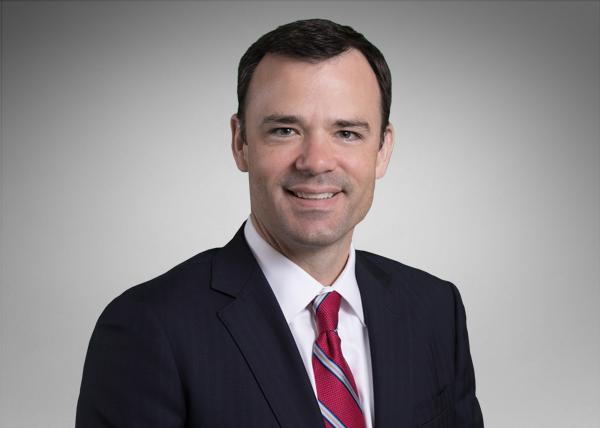As we reported in our prior client advisory on the wave of investigations to follow the pandemic, the Coronavirus Aid, Relief, and Economic Security (“CARES”) Act established three new bodies to conduct oversight and investigations on pandemic-related issues. Separately, House Speaker Nancy Pelosi announced a special committee to conduct additional pandemic-related oversight. In recent weeks, these new bodies have begun to take shape. Below we summarize the key developments so far.
House Select Subcommittee on the Coronavirus Crisis
On April 23, 2020, the House voted to establish the House Select Subcommittee on the Coronavirus Crisis, which will operate under the House Committee on Oversight and Reform. The resolution passed on a party-line vote of 212–182.
When Speaker Pelosi first announced the creation of the House panel on April 2, she appeared to have contemplated a standalone Select Committee on the Coronavirus Crisis modeled on the World War II-era Truman Committee. Instead, likely reflecting internal House politics, the House established the coronavirus panel as a subcommittee under the House Committee on Oversight and Reform. As a subcommittee, it may not have the same prominence and independence that originally seemed to be the Speaker’s intent.
The resolution states that Select Subcommittee members "shall be treated as though a member of the Committee on Oversight and Reform for purposes of the select subcommittee." This allows the members of the Select Subcommittee to function as Subcommittee members, permitting them to ask questions during hearings and to vote on recommendations as provided in the resolution. It does not permit them to participate as members of the full Committee, however.
The Select Subcommittee is comprised of twelve members, including seven Democrats and five Republicans. Majority Whip Jim Clyburn (D-SC) is the Chair of the panel. Minority Whip Steve Scalise (R-LA) is the Ranking Member. Other members include Carolyn Maloney (D-NY), Chair of the Committee on Oversight and Reform; Maxine Waters (D-CA), Chair of the Committee on Financial Services; Nydia Velázquez (D-NY), Chair of the Committee on Small Business; Jamie Raskin (D-MD); Bill Foster (D-IL); Andy Kim (D-NY); Jim Jordan (R-OH); Blaine Luetkemeyer (R-MO); Jackie Walorski (R-IN); and Mark Green (R-TN). Chairman Clyburn has named David Hickton, a former U.S. Attorney for the Western District of Pennsylvania, as the Staff Director for the Select Subcommittee.
The Select Subcommittee has been directed to “conduct a full and complete investigation and study and issue a report to the House of its findings” on the following:
- the efficiency, effectiveness, equity, and transparency of the use of taxpayer funds and relief programs to address the coronavirus crisis, including through Federal agencies, State and local government entities, financial institutions and other private businesses, contracts, grants, loans, loan guarantees, investments, cooperative agreements, or any other means;
- reports of waste, fraud, abuse, price gouging, profiteering, or other abusive practices related to the coronavirus crisis;
- the implementation or effectiveness of any Federal law applied, enacted, or under consideration to address the coronavirus crisis and prepare for future pandemics;
- preparedness for and response to the coronavirus crisis, including the planning for and implementation of testing, containment, mitigation, and surveillance activities; the acquisition, distribution, or stockpiling of protective equipment and medical supplies; and the development of vaccines and treatments;
- the economic impact of the coronavirus crisis on individuals, communities, small businesses, health care providers, States, and local government entities;
- any disparate impacts of the coronavirus crisis on different communities and populations, including with respect to race, ethnicity, age, sex, gender identity, sexual orientation, disability, and geographic region, and any measures taken to address such disparate impacts;
- executive branch policies, deliberations, decisions, activities, and internal and external communications related to the coronavirus crisis;
- the protection of whistleblowers who provide information about waste, fraud, abuse, or other improper activities related to the coronavirus crisis;
- cooperation by the executive branch and others with Congress, the Inspectors General, the Government Accountability Office, and others in connection with oversight of the preparedness for and response to the coronavirus crisis; and
- any other issues related to the coronavirus crisis.
Despite the Select Subcommittee’s broad charge, Chairman Clyburn has suggested that the Select Subcommittee’s focus will be narrower. During the Select Subcommittee’s first briefing on May 13, he indicated that the Select Subcommittee would not investigate how and where the pandemic began or who is responsible, but would instead ensure that funds for coronavirus relief are spent “efficiently, effectively, and equitably.”
It appears that some did not like that focus. During the Select Subcommittee’s second briefing on May 21, Chairman Clyburn said that he wanted to “address concerns that have been raised over a remark I made about what our aims should be in addressing this pandemic.” He suggested that the pandemic presents an opportunity to “restructure things” to address the “failings” of existing systems. Chairman Clyburn explained, “when we rely on healthcare workers to save our lives but don’t provide them the protective equipment that they need to save theirs, that is failing, and that needs to be restructured. When we rely on farmworkers and grocery store clerks to ensure that we can buy food for our families but they don't get paid enough to ensure that they can buy food for their families, that is a failing that must be restructured. When we rely on transit workers to help us make it home safely but don't provide the safeguards to help them make it home safely, that is a failing that needs to be restructured. Restructuring these failings must now be the mission of this select committee, ensuring that the funds that we have appropriated are spent effectively, efficiently, and equitably for the sake of the workers who we have heard from today and in honor of the memories of those who aren’t here.”
The Select Subcommittee has already indicated interests in testing, tracing, and containment strategy; worker protections, pay, and leave; reopening the economy; and recipients of federal funds under the CARES Act.
Coordinated Senate Oversight
Rather than creating a special committee, Majority Leader Mitch McConnell (R-KY) announced that Senate Banking Committee Chairman Mike Crapo (R-ID) will coordinate the Senate’s oversight of the CARES Act.
Pandemic Response Accountability Committee
The CARES Act established a Pandemic Response Accountability Committee (“PRAC”) within the Council of Inspectors General on Integrity and Efficiency (“CIGIE”) to prevent and detect fraud, waste, abuse, and mismanagement of funds and to mitigate risks across programs and agencies related to the government’s coronavirus response. Congress appropriated $80 million for the PRAC.
After the inspectors general of several major agencies selected Glenn Fine to lead the PRAC, President Trump removed him from his post as Acting Inspector General of the Department of Defense, which also had the effect of removing him from the PRAC. Michael Horowitz, the Department of Justice Inspector General, is now serving as Acting Chair of the PRAC.
The PRAC has nineteen other members who are inspectors general, acting inspectors general, or otherwise performing the duties of the inspectors general for various agencies. Certain agencies’ inspectors general were specifically identified as members of the PRAC in the CARES Act, whereas others were designated members of the Committee (during Fine’s brief tenure) because they oversee agencies that disburse CARES Act funds or are otherwise involved in the coronavirus response.
Robert Westbrooks was appointed to serve as the Executive Director of the PRAC, and Lisa Miller was appointed to serve as the Deputy Executive Director. The PRAC has a website and Twitter account.
Special Inspector General for Pandemic Recovery
The CARES Act established a Special Inspector General for Pandemic Recovery (“SIGPR”) within the Department of the Treasury. The SIGPR will be responsible for conducting, supervising, and coordinating audits and investigations of the making, purchase, management, and sale of loans, loan guarantees, and other investments by the Treasury under the CARES Act. The SIGPR will also be responsible for providing quarterly reports to Congress. Congress dedicated $25 million of new Treasury funds for the SIGPR to carry out these duties.
President Trump nominated Brian Miller, the longtime Inspector General of the General Services Administration, as the SIGPR, in early April. His nomination has been favorably reported by the Senate Banking Committee and unanimously approved by the Homeland Security Committee and is awaiting consideration by the full Senate, by which he is expected to be confirmed.
Congressional Oversight Commission
The CARES Act authorized the creation of a bipartisan Congressional Oversight Commission charged with oversight of the Treasury Department and Federal Reserve, as they work to provide economic stability in the wake of the coronavirus. The Congressional Oversight Commission will have significant authority to conduct oversight and investigations, including holding hearings and taking testimony.
Congressional leaders have appointed four of the five members of the Commission:
- Rep. Donna Shalala (D-FL), appointed by Speaker Nancy Pelosi (D-CA);
- Rep. French Hill (R-AR), appointed by House Minority Leader Kevin McCarthy (R-CA);
- Sen. Pat Toomey (R-PA), appointed by Senate Majority Leader Mitch McConnell (R-KY);
- Bharat Ramamurti, former aide to Senator Warren, appointed by Senate Minority Leader Chuck Schumer (D-NY).
The final member and chair of the Commission remains to be appointed. This member is appointed jointly by the Speaker and Senate Majority Leader, which may be difficult to accomplish.
On May 18, 2020, the Commission released its first report. The report highlights the Commission’s areas of focus for its oversight of the Federal Reserve and Department of the Treasury, and includes general and specific questions that the Commission intends to consider in its future work. The report stated that, in short, the Commission will work to answer “two basic questions: What are the Treasury and the Fed doing with $500 billion of taxpayer money? Who is that money helping?”
If you have any questions concerning the material discussed in this client alert, please contact the following members of our Election and Political Law and Public Policy practices.
Back
Back






